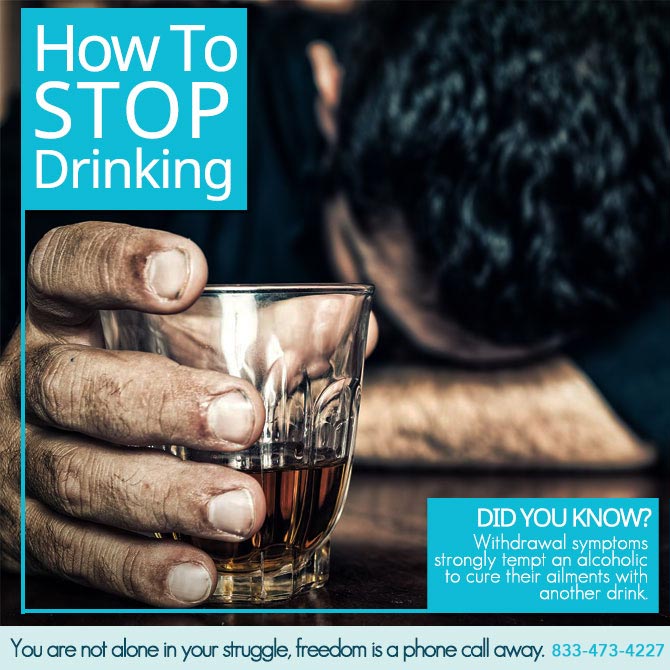How Drinking can Become a Problem
Watching a loved one suffering from alcoholism can be painful and scary, causing friends and family to feel helpless about what they can do to help their loved one overcome their sickness and heal. Recovery is no easy feat, and many addicts are unable to beat their disease on their own. Withdrawal symptoms can set in within 48 hours of a person’s last drink and can deliver severe physical and mental suffering that strongly tempts an alcoholic to cure their ailments with another drink.
Because the only alternative to recovery is a tragic, premature death, it is paramount that alcoholics seek out professional treatment and therapies. A variety of approaches and can cater to the specific circumstances and wants of the individual alcoholic.
Why Treatment?
Many alcoholics are fearful of undergoing treatment because they do not believe they can learn how to stop drinking. They may also be unsure of exactly what treatment will entail, causing them to be scared off by a lack of familiarity. Understanding the full spectrum of treatment options can calm some of these fears and empower alcoholics just enough to commit to treatment.
The most important part of any treatment process, and often the most challenging for both alcoholics and their loved ones, is coming to an agreement to enter treatment. Once in the hands of trained professionals, alcoholics undergoing withdrawal and recovery will be buoyed by a host of resources and support designed to make their recovery efforts successful, providing them a fresh start in life.
Treatment and Therapy Options
A traditional approach to alcoholism treatment is through support groups like Alcoholics Anonymous. This is a free support group service that can help alcoholics connect with other current and recovering addicts. Although it might not be intensive enough to help some alcoholics become sober, support groups can be a stepping stone to entering a treatment program, and they can be very beneficial to those trying to maintain their sobriety.
Pharmaceutical treatments are also available for alcoholics and other addicts. None of these is a complete remedy on its own, but some FDA-approved medications are currently used to aid in the treatment of alcoholism. For example, Antabuse makes individuals sick when they consume any alcohol, and Naltrexone blocks alcohol’s effect on the brain, helping curb cravings for alcohol. While effective, these should only be used under medical guidance and should be paired with other therapies and treatment.
Alcohol Rehab
The most effective treatment approach, though, is undergoing alcohol rehabilitation at an inpatient clinic. These facilities provide 24-hour support through a range of services, including support groups, medications, individual therapy, and counseling sessions, as well as other rehabilitative measures designed to teach sobriety management techniques. Family therapy is also sometimes used to teach alcoholics and their families about the effects of the disease and the proper way to handle alcohol-related issues.
Outpatient counseling is also available as an alternative to in-patient hospitalization, or it can follow in-patient treatment to provide long-term support to recovering alcoholics.
Finding a Treatment Center
 Most alcoholics live close to an alcohol treatment center that can help them overcome their disease. Drugrehab.org is here to assist in you or your family members struggle to learn how to stop drinking. You are not alone in this, and we have the right treatment center and solution for you. We have the skills and trained professionals to direct you in the appropriate way since no one individual requires the same treatment modality. You are not alone in your struggle, and there is hope. Please contact Drugrehab.org today and get help. Don’t wait a day longer in the depths of an addiction. Drugrehab.org can help you or someone you care for gain control of life again.
Most alcoholics live close to an alcohol treatment center that can help them overcome their disease. Drugrehab.org is here to assist in you or your family members struggle to learn how to stop drinking. You are not alone in this, and we have the right treatment center and solution for you. We have the skills and trained professionals to direct you in the appropriate way since no one individual requires the same treatment modality. You are not alone in your struggle, and there is hope. Please contact Drugrehab.org today and get help. Don’t wait a day longer in the depths of an addiction. Drugrehab.org can help you or someone you care for gain control of life again.
Call us today at the toll free number at the top of the page. If emailing us is more convenient, please fill out our form. Take your first and most important step toward recovery.


